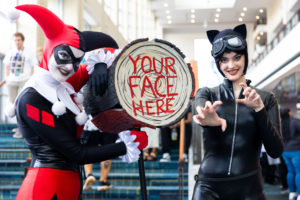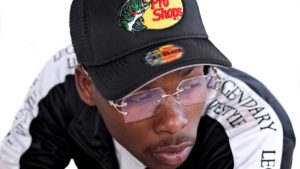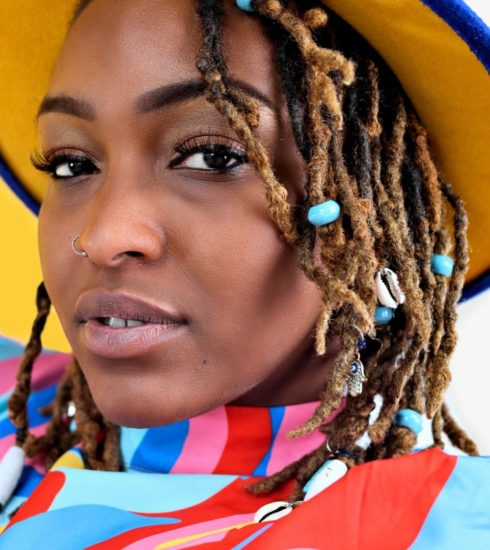Stephaun Perry Tells Stories Every 24 Frames Per Second
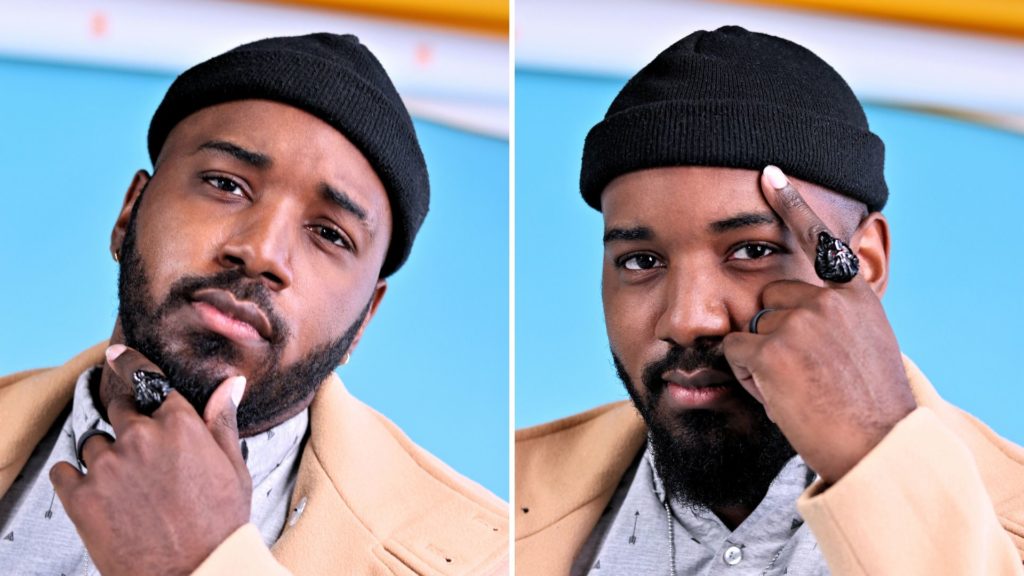
Stephaun Perry is a filmmaker born in Columbus, OH and raised in Baltimore, MD. He began filmmaking after returning home from the U.S. Navy and is best known for directing “Gotham Knights”, “Bump In The Night” and “Wasteland”.
Where were you born and what was your childhood like?
I was born in Columbus, Ohio, but I was there for like a day. I lived most of my life in Baltimore, Maryland. My childhood, I was a black kid in Baltimore, so we had moments. My mom was a hustler. She did her thing to make sure me and my sister were taken care of. That’s kind of where I get my drive from. She’s just always putting the grind, and she’s always going in to make sure we were taken care of. Also, my older sister was always grinding as well and always helping whenever she could. It was us for a good minute until we met my stepfather, who is an amazing man as well. Then we all just kept going until we finally moved down to North Carolina and just moved all around North Carolina for a little bit. My father is military, so I got used to moving around a lot when I was younger.
How were your teenage years different from your twenties?
My teenage years? Teenage years, I was doing a lot of different things with arts. I was always in the arts somehow, some way, whether it was music. My mom played six different instruments when I was younger, and I started playing a lot of instruments as well. I got really into dance, and I was the only one in my family that was dancing. Everybody else in my family was singers, but I couldn’t sing. I loved dancing, so I did a lot of dance and also started doing a lot of acting as well. That’s how I got into this field. I met a lot of people who I work with now who are actors. When I first started as an actor back in high school going into my adult life, and during my adult life, my younger 20 years, I started acting a little bit more. Then I started getting into the filmmaking process around mid-20s or so.

When did you discover that you had a love for filmmaking?
I got into acting when I was in high school. I went to a performing arts high school. I used to sing when I was younger, and I had to quit singing because I lost my voice for two weeks. It was the worst. I remember it was back in, I don’t even remember when, 2000 and something. I lost my voice, and I couldn’t talk for two weeks. The last show I was supposed to do, I couldn’t talk, I couldn’t sing, so I was just doing the acting part, and I loved it. I got bit by the acting bug, and I was just like, “This is amazing.” I was in a high school, and we had auditions for the school musical, which was West Side Story, and I auditioned for that, got a role in that. From there, I just kept acting, kept acting, kept acting. Every time I got the opportunity, whether it was in college or in other projects, I just kept acting and just started falling in love with it.
I started developing love for filmmaking when I was in boot camp. When I was in boot camp, one of the things I did to kind of stay sane and not lose my mind was, one, read my Bible every day, but also I was writing stories. I was writing ideas for different movies because we got a little journal that we used to keep. On Sundays, whatever, or even throughout the day or week, I would write ideas for different movies and things like that. “Oh, what if we did this type of movie?” I don’t even know where that notebook is. Somebody finds it, they’re going to be rich, and I wrote stories among stories in that notebook.
Follow Stephaun Perry on Instagram @stephthedirector
Then when I finally got back home, I was on this dance team, and there was a dude who was doing video for the dance team, and I reached out to him and said, “Yo, bro, I got ideas, I know you want to do more creative stuff, let’s link up, see what we can possibly do.” He had things going on in his life that were just not allowing him to do film like that, which wasn’t really his fault like that. I’m the type of person, I don’t like waiting on people. So if I have an idea or something, I want to knock it out, I want to do it, I want to try something. So I said, “You know what, I’m going to go ahead and start making stuff myself.”
So, I ended up buying a cheap camera from a pawn shop. At the time, I was still acting in this dinner mystery thing where one of the cast members would die, and the audience had to figure out who killed him. You know, blah, blah, blah. There were some friends of mine on the set, and I said, “Hey, I got this idea. Would you all want to come and help me with this?” They were like, “Yeah, let’s do it.” We came together and shot my first short film, and I realized that I love doing this more than acting. So, I thought, “Let me just keep doing this,” and it just kept growing from there.
How does your Navy background show on set?
One thing with us, like one thing the Navy kind of taught me is to delegate better, but also be the best leader I possibly could. You know, I still delegate with things, but a lot of times when it comes to it, I want to show I lead by example. You know, I’m not going to make you do something that I’m not going to do, you know? And there have been times where, you know, like you learn your chain of command and you learn, like, hey, this person is responsible for this, this person is responsible for that. And it’s helped me be like, okay, cool, I can step back and let this person take care of this. I don’t have to be over here or whatever. But also, like I said, let me know, like, hey, if somebody needs help, whatever, help them. You know, that’s your teammate. That’s your shipmate or whoever, like, that’s whoever you’re trying to help. They need your help. Let’s get to it. You feel me? This is a family unit. If we all work together, we’ll make it through it.
Tell us about Eaze Day Entertainment and The Hive Stunt Company.
So Eaze Day is our production company. It has been around for almost six or seven years, maybe. Initially, I started as a freelancer, but one day, a group of my friends and I decided to turn it into a real business. We asked ourselves, “Do you all want to make this a real thing?” and we all agreed. Then we thought about the name. I had been using Eaze Day for a while, but it wasn’t officially registered as a business yet, and we weren’t making any money at that point. So we said, “Hey, let’s keep it as Eaze Day. That’s what people already know it as.” I was like, “Okay, cool.”
The term Eaze Day itself comes from the Navy. Whenever we were in a stressful or exhausting situation, someone would yell out “Easy Day,” and everyone else would join in. It was like saying, “This is difficult, but we made it look easy.”
Follow Stephaun Perry on Instagram @stephthedirector
That’s kind of the essence of filmmaking. Filmmaking is challenging, but we strive to make it look effortless. Eaze Day is also about building a community. I wanted to create a safe space, especially for people of color, particularly black people. I know firsthand how difficult it is for us to get opportunities, and that’s one of the reasons I transitioned into filmmaking as well.
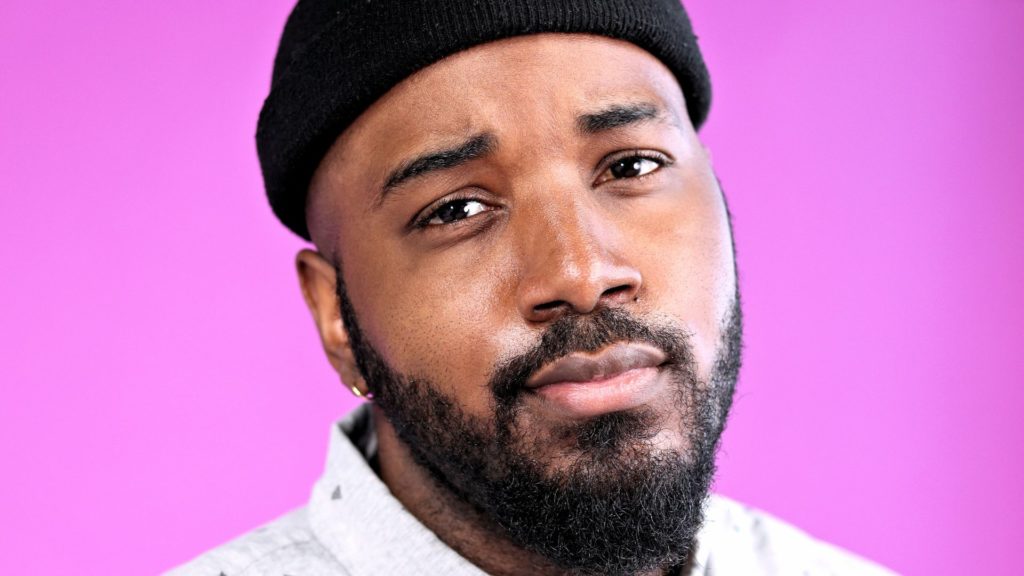
The Hive came about because, first of all, I love action movies. I’ve been watching action movies since I was young. I remember my best friend and I used to recreate the Matrix fight scene in the tunnel with Agent Smith and Neo all the time. One thing about me is that when I started doing filmmaking, I didn’t want to follow what everyone else was doing. When I first started out, everyone was making dramas or hood dramas. You know, it was always about someone being a gangster. And even now, we still see a lot of that, which is fine. It’s completely cool. But I didn’t want to be that guy. So, I initially started by making horror movies. This was before Jordan Peele gained popularity and everything. So, I did horror movies for a while.
It was interesting because I was making horror movies, and I had another friend who was making horror movies with me. We were doing this before the big boom of black horror. And everyone would say, “What’s wrong with you guys? You must be sick in the head for making horror movies.” But we would reply, “No, we just don’t want to do what everyone else is doing.” Then Get Out came out, followed by Us, and suddenly everyone was like, “Yo!” It was crazy because when we started making horror movies, nobody wanted to be a part of it like that. Some people did, of course. But I remember trying to gather a group of black friends for a writer’s room, and they were like, “Oh, that’s not really our thing. We can do dramas for you. If you need a drama, let us know.” And I was like, “That’s not what we’re trying to do.” I’ve done dramas before, and when I do them, I like to make them raw and intense. But I wanted to do something different, which was horror.
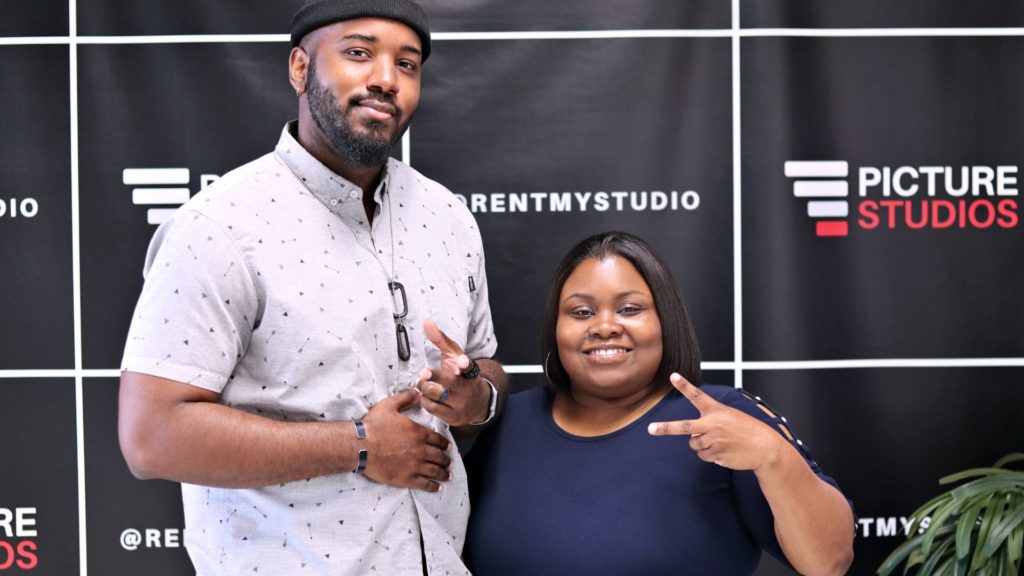
Eventually, as I mentioned, action has always been something I’ve loved, and I would dabble in it occasionally. Then I met Keith and our friend Zoe, and we were like, “Yo!” One day, we had to participate in a competition for a zombie festival in Cary, NC. We looked at it and said, “Let’s do this.” The deadline was the next day, so we only had one day to shoot it. We thought, “Okay, let’s go for it.” We gathered a few friends, came up with a script in a day, choreographed it right before shooting, and then we filmed it and released it. And we were like, “Yo, this is incredible. We did this in just a few hours. Let’s make this happen.”
So, we thought, “Let’s come up with a name.” My friend suggested “Hive” because our friend Zoe is Asian, and she always says, “We’re black and yellow all the time.” So I was like, “Okay, great.”
Follow The Hive Stunt Company on Instagram @thehivestunts
If you could cast yourself in Marvel film what hero would it be?
If I were younger, I would probably choose Miles Morales, Spider-Man, Black Panther, or Falcon. One of these three characters would be among my top picks. Especially Spider-Man, every kid loves Spider-Man. It’s Spider-Man, you know? And now we have a black and Hispanic Spider-Man, which is incredible. So yeah, it’s Spider-Man. Alright.

When will it be the right time for you to do a feature film?
That’s a question I’ve been asking myself for a while. There’s never a perfect time for anything. That’s the main thing. It’s just a matter of knowing in your heart when you have to do it. There have been times when I thought, “I’m going to write my feature this year. I’m going to write it this way, blah blah blah.” But one important factor is that I do this for a living. So I would have to ensure that I’m at a point where I’m not working on anybody else’s projects, just my own.
Another consideration is figuring out what the first thing I want to release as a feature film should be. I think to myself, “I can’t let this be trash. It can’t be a Tubi movie.” And that’s not a knock on Tubi movies. I know many talented people who release their films on platforms like Tubi. I feel like Tubi has gotten a bad rap because people tend to find the lower-quality films on there and assume they’re all B-movies. So, there’s that.
Follow Eaze Day Entertainment on Instagram @eazedayent
I also need to determine what genre I want to focus on—whether it’s horror, action, or drama. I have stories for all of those genres. Additionally, time is a crucial factor. I want to make sure that everyone’s time is considered, and I don’t want to take up too much of people’s time. I don’t want it to be a situation where we shoot one day, then shoot again the following week, and then again a month later. I want to complete the entire project in one go. Ideally, I’d like to have a five-day shoot and be done with it. But for that, I need to have enough money to pay people for their time during those five days. I also need to determine the locations we’ll be shooting at. If we can accomplish the project in a shorter turnaround time and release something that’s pretty good—not the best work I’ve ever done, but still good—then people might see it and say, “Let’s fund this person’s next project.” That’s what I’m trying to figure out. Maybe it will be set in just one location, or maybe it will be a story where we have to work our way up a building like in the film “The Raid.” I just need to decide.
I have stories for all these ideas. For example, the PTSD film—I think I might turn that into a feature. But here’s the thing—I have a problem. I get a lot of ideas. I get inspired by anything. For instance, I’ll be watching “John Wick” and think, “Let me make a John Wick-type movie.” Then, I’ll see “Creed” and say, “Let me make a Creed-type movie.” I get inspired quickly by something, and I think, “I can do that. Let’s go for it.” I’ve had discussions with others where we say, “Let’s do it.” So, it’s about me staying focused on one thing. That’s the challenge. Sometimes, I work on something for too long, and then I’m like, “Ugh, I don’t want to work on this anymore. Let me move on to something else.” It’s a process. I know many people who are waiting for me to do it. I have friends who say, “I want to be in your feature.” I want to make it happen. Give me a moment because it requires time. There’s a lot going on, and many people are eager to work with me. I want to do it. I just need the time to make it a reality.
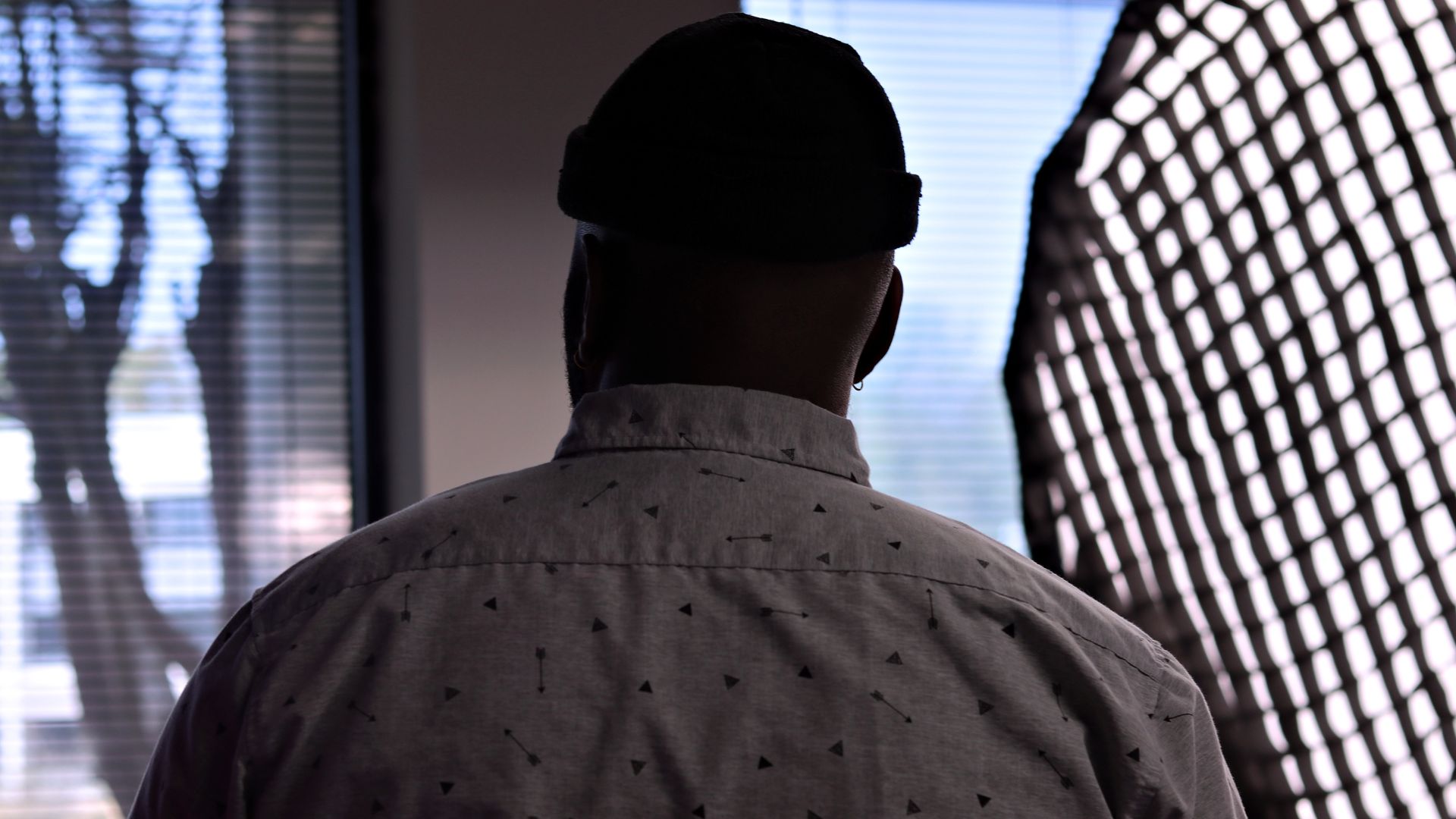
So, the feature film might happen this year, or it might happen next year. One day, I might just say, “Boom, here’s the script. We’re making this happen.”


